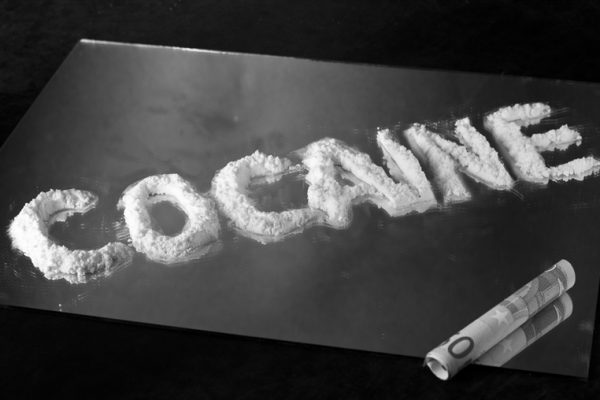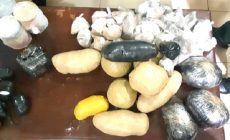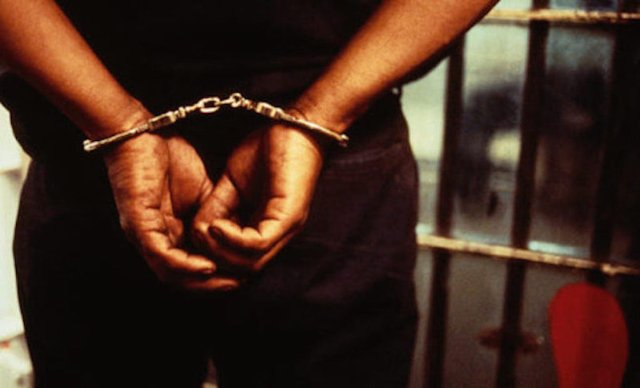‘Cocaine’ turns ephedrine
- Posted on
- Comment
In a twist of events, the Narcotics Control Board (NACOB) has stated that the whitish powdery substance found on two Nigerians at the Kpeglo Border Post last Friday is not cocaine but ephedrine.
Ephedrine is an odourless, white, powdered substance used in the preparation of legal drugs and also methamphetamine, a strong and highly addictive drug that affects the central nervous system and which has no legal use.
The Customs Division of the Ghana Revenue Authority (GRA) had earlier stated that a preliminary test it had done on the powdery substance indicated the stuff was cocaine.
However, the Head of the Enforcement Unit at NACOB, Mr Solomon Stanley Eyo, told the Daily Graphic in Accra on Wednesday, October 2, that as the state institution clothed with the law to conduct tests on suspected narcotic drugs, NACOB took centre stage in the investigations and found out that the substance was ephedrine.
Explaining what might have led the Customs officials to suspect that the substance was cocaine, he said: “It [substance] is whitish and powdery and I think that’s where the problem comes from; it’s not every white thing that is cocaine.”
Methamphetamine trade
Mr Eyo said information available to his office, in addition to intelligence from the Drug Law Enforcement Agency (DLEA) of Nigeria, pointed to the suspicion that the seized ephedrine was to be used in the preparation of methamphetamine, which has become a lucrative trade, far greater than the trade in cocaine.
“Our intelligence has been that people are using ephedrine to prepare methamphetamine, which is a recreational drug used to get high. Most often, the methamphetamine is transported to South Africa for onward trafficking to the Far East, where the market is very high,” he said.
“One kilogramme of methamphetamine in the Far East is about $120,000, which is higher than one kilogramme of cocaine, which is $40,000,” he added.
Significantly, he said, the cost of producing one kilogramme of methamphetamine was lower than the cost of producing one kilogramme of cocaine, but at the end the day methamphetamine cost higher than cocaine on the market.
Mr Eyo said recently, there was an international meeting of heads of national drug law enforcement agencies in Mauritius, which the Deputy Executive Secretary of NACOB, Mr Michael Addo, attended, “and he came with the information that the South African authorities arrested a quantity of methamphetamine coming from Ghana”.
Arrests and examination
Walking the Daily Graphic through the arrests at Kpeglo, Mr Eyo said on September 27, this year, the two suspects were going through security checks at the Kpeglo Border Post when some whitish substance was found in their bags, which NACOB suspected to be a narcotic drug.
“So narcotics officers sent the substance to the Aflao NACOB office, where a pre-field test [the first test that is done at the point of arrest] gave an indication of methamphetamine,” he said.
According to him, following the revelation, NACOB officials at the border informed their national headquarters about the development, and the following day a team of NACOB officials from Accra was dispatched to Aflao to bring the two suspects to the headquarters.
“When they went there, the Customs officials handed the two suspects over to the narcotics team, along with the drugs and handing over notes, and when we did another test on the drugs at our headquarters with a specialised drug detector, it showed it was ephedrine,” he said.
He explained that the first test gave an indication of methamphetamine because of the method and the chemical used for the test.
“That one did not have an ephedrine indicator in it and that is why it showed methamphetamine,” he explained.
Mr Eyo said when a second test was done at the NACOB Headquarters, it showed ephedrine.
“Let me also say that the first test in Aflao showed methamphetamine because ephedrine is a precursor in the preparation of methamphetamine and also because the first test did not have the component to indicate ephedrine and that was why methamphetamine showed. So the second equipment was more advanced and gave the right answer,” he said.
Arrest in Nigeria
He said the collaboration between NACOB and its Nigerian counterpart revealed that the ephedrine was brought in from Nigeria.
Already, he said, the Nigerian DLEA had picked up a woman who the two Nigerian men arrested in Ghana had named as the source of the drug.
He also stated that information from Nigeria indicated that the fiance of the woman arrested in Nigeria was receiving the methamphetamine in South Africa, adding: “So it is an international network.”
“We have a link with Nigeria and we communicate on many issues. I spoke with one of the suspects, who said it was a lady friend who sent him with the drugs and he called his friend to accompany him,” he said.
Mr Eyo gave an assurance that NACOB would continue to collaborate with the Customs Division of the GRA and other sister agencies to fight drug trafficking in Ghana.
-Daily Graphic











 (Selorm) |
(Selorm) |  (Nana Kwesi)
(Nana Kwesi)